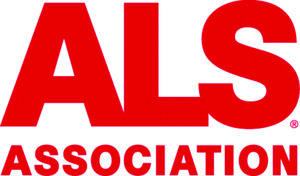The ALS Association Announces New Research Awards to Focus on Therapies for Lou Gehrig's Disease
WASHINGTON, Nov. 30, 2012 /PRNewswire-USNewswire/ -- The ALS Association will add ten awards totaling $2.9 million to its Translational Research Advancing Therapies for ALS (TREAT ALS™) portfolio, funding two clinical management grants, three drug discovery contracts, two clinical pilot studies and three biomarker studies—all focused on finding improved treatments for people with amyotrophic lateral sclerosis (ALS), otherwise known as Lou Gehrig's disease. The ALS Association's TREAT ALS ™ portfolio presently has 80 active research projects with a total award value of $12 million.
Due to the deadly and often rapid nature of ALS, a need exists for treatments and a cure for this disease as there is only one drug approved by the U.S. Food and Drug Administration (FDA) that modestly extends survival. ALS is a progressive neurodegenerative disease that affects nerve cells in the brain and the spinal cord. Eventually, people with ALS lose the ability to initiate and control muscle movement, which often leads to total paralysis and death within two to five years of diagnosis. For unknown reasons, veterans are twice as likely to develop ALS as the general population.
The two clinical management grants, which intend to expand access to care for people with ALS will analyze remote forms of treatments. Edward Kasarskis, M.D., and Richard Kryscio, Ph.D., with the University of Kentucky Research Foundation in Lexington, Ky. will devise and monitor a virtual ALS center that could provide people with the disease with multidisciplinary care remotely in their homes. James Berry, M.D., and Merit Cudkowicz, M.D., with the Massachusetts General Hospital in Boston, Mass. have devised a "telehealth" initiative to assess a videoconferencing program that offers home health providers tools to provide care to people with ALS in homes.
The three drug discovery contracts awarded by The ALS Association will support the pre-clinical assessment of therapeutics for the disease, and researchers expect they will lead to the progress of new therapies for ALS. Researchers leading these projects include: Oleg Butovsky, Ph.D., with Brigham and Women's Hospital in Boston, Mass.; Steven Burden, Ph.D., with Skirball Institute, New York University Medical School, in New York; and Rita Sattler, Ph.D., and Jeffrey Rothstein, M.D., Ph.D., at Johns Hopkins University School of Medicine in Baltimore, Maryland.
In addition to the clinical management grants and drug discovery contracts, The ALS Association is supporting two novel clinical pilot studies involving people with ALS with the Northeast ALS Consortium (NEALS) Clinical Trials Network. Jonathan Glass, M.D., and Christina Fournier, M.D., with Emory University in Atlanta, along with Merit Cudkowicz, M.D., and James Berry M.D., in Boston, Mass. will work together to determine whether they can identify a subset of people with ALS that respond to immune suppressing medication. Additionally, Jeremy Shefner, M.D., Ph.D., with SUNY Upstate Medical University in Syracuse, N.Y. will test Cogane™, a small, non-peptide agent that can penetrate the brain and spinal cord, which has been shown to improve the number of functional motor units and increased the life span in mouse models of ALS.
The ALS Association will also fund three biomarker studies, which could accelerate diagnosis of the disease and hasten clinical trials. Two of the three studies were supported by EMD/ALS Biomarker Research Fund through the Keith Worthington Chapter of The ALS Association. Researchers include Michael Benatar, M.D., and Joanne Wuu, both with the University of Miami Miller School of Medicine in Miami, Fla., who will look for predictive biomarkers in patients with a genetic form of the disease before they develop symptoms. Patricia Anders, MHG, Boston, Mass. will develop a strength testing device that may more accurately measure response to therapy. And finally, Lyl Ostrowe, M.D., Ph.D.; Dean Wong, M.D., Ph.D. and Jeffrey Rothstein, M.D., Ph.D., all with Johns Hopkins University, will assess whether a PET imaging marker can accurately distinguish between people with ALS and healthy subjects.
To view a full listing of these awards, please visit www.alsa.org/researchawards2012.
About The ALS Association
The ALS Association is the only national non-profit organization fighting Lou Gehrig's Disease on every front. By leading the way in global research, providing assistance for people with ALS through a nationwide network of chapters, coordinating multidisciplinary care through certified clinical care centers, and fostering government partnerships, The Association builds hope and enhances quality of life while aggressively searching for new treatments and a cure. For more information about The ALS Association, visit our website at www.alsa.org.
SOURCE The ALS Association
WANT YOUR COMPANY'S NEWS FEATURED ON PRNEWSWIRE.COM?
Newsrooms &
Influencers
Digital Media
Outlets
Journalists
Opted In





Share this article